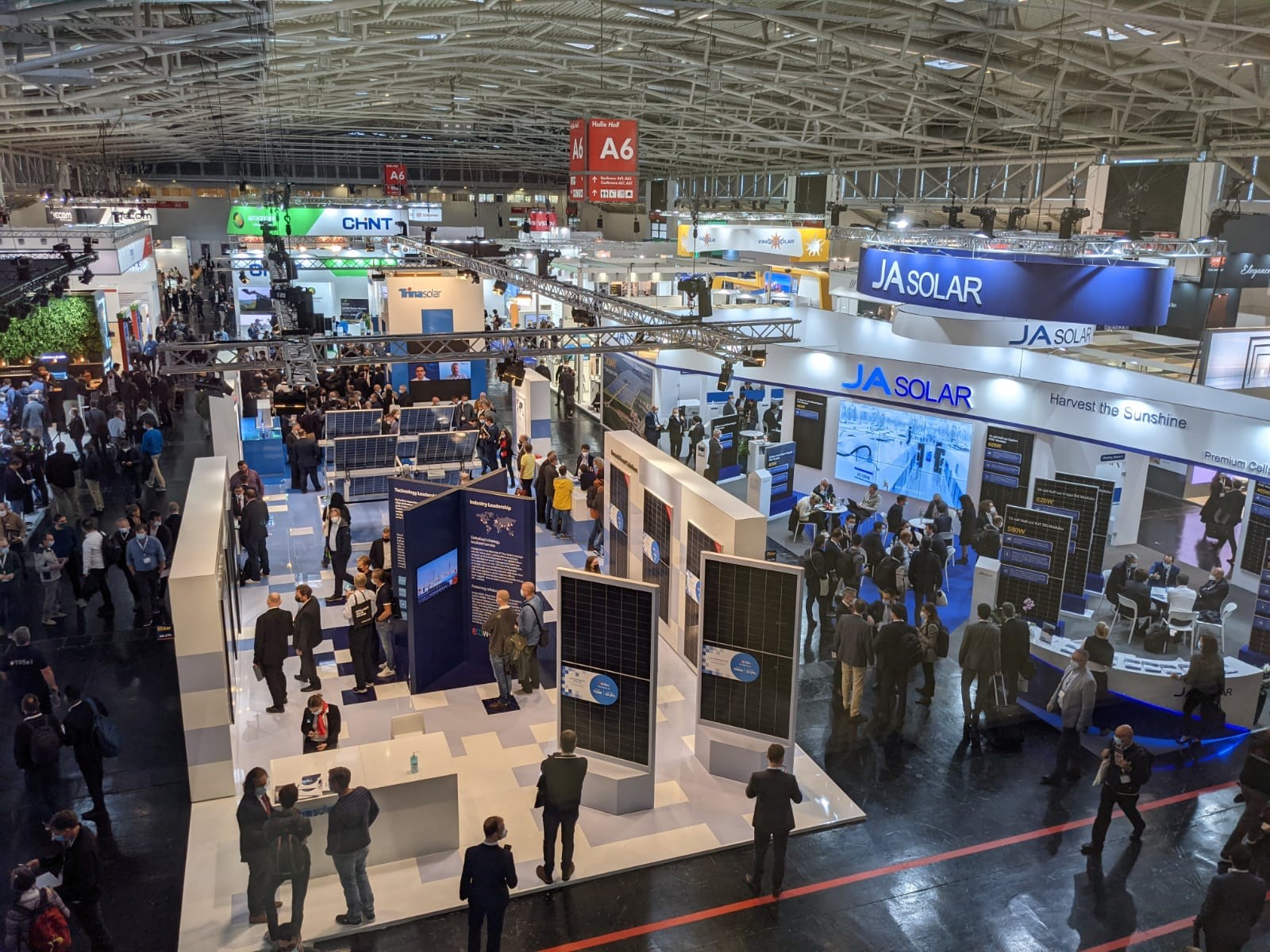

Intersolar Europe, an annual solar industry trade fair, begins today in Munich, Germany, as the EU looks to accelerate its transition to renewable energy and reduce its reliance on Russian energy sources.
Manufacturers, suppliers and project planners are poised to discuss the latest developments in solar energy, photovoltaics and solar power plants. So far, the EU has funded research to find new materials that will produce more efficient solar panels and lower the cost of generating energy. As such, the European Commission (EC) will soon release details on a plan to slash the bloc’s dependency on Russian gas, which would likely include a campaign for consumers to save energy.
Medium-term, the EC hopes to speed up its transition by permitting renewable energy projects to receive permits within a year and would also propose rules requiring countries to designate specific areas of land or sea suitable for such operations.
34 percent of Europe’s energy is expected to be produced by renewables and nuclear in 2024. Comparatively in the long-term, the EU is forecasted to have at least 1,000 gigawatts of photovoltaics and at least 70 million solar rooftops installed in the region by the end of the decade.
Wake up smarter with an assessment of the stories that will make headlines in the next 24 hours. Download The Daily Brief.
Madeline McQuillan is an Analyst for Foreign Brief and a contributor to the Daily Brief. Her expertise is in European politics and transatlantic relations. She holds a Master of Science in European and International Public Policy from the London School of Economics.

